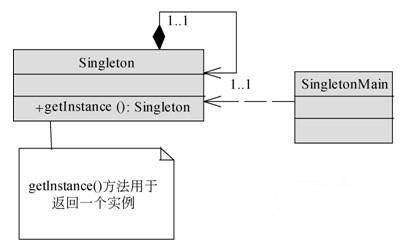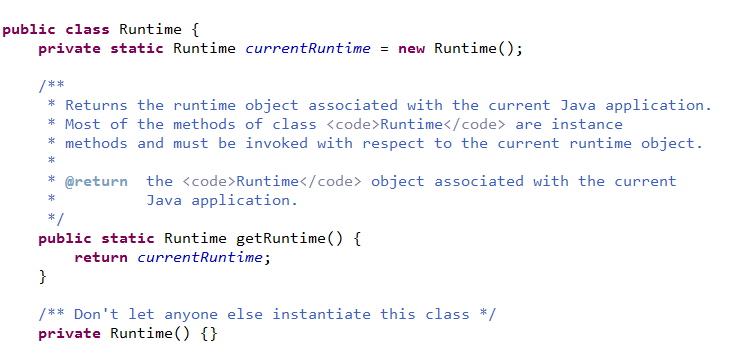本篇内容介绍了“java单例模式举例分析”的有关知识,在实际案例的操作过程中,不少人都会遇到这样的困境,接下来就让小编带领大家学习一下如何处理这些情况吧!希望大家仔细阅读,能够学有所成!
概念
单例模式即一个JVM内存中只存在一个类的对象实例

分类
1、懒汉式
类加载的时候就创建实例
2、饿汉式
使用的时候才创建实例
当然还有其他的生成单例的方式,双重校验锁,枚举和静态内部类,文中会有介绍
实践
懒汉式
1)线程不安全,不可用
public class Singleton {
private static Singleton instance;
private Singleton (){}
public static Singleton getInstance() {
if (instance == null) {
instance = new Singleton();
}
return instance;
}
}
2)线程安全,同步方法,效率低,不推荐
public class Singleton {
private static Singleton instance;
private Singleton (){}
public static synchronized Singleton getInstance() {
if (instance == null) {
instance = new Singleton();
}
return instance;
}
}
3)线程不安全,会产生多个实例,不可用
public class Singleton {
private static Singleton singleton;
private Singleton() {}
public static Singleton getInstance() {
if (singleton == null) {
synchronized (Singleton.class) {
singleton = new Singleton();
}
}
return singleton;
}
}
饿汉式,无线程安全问题,不能延迟加载,影响系统性能
4)
public class Singleton {
private static Singleton instance = new Singleton();
private Singleton (){}
public static Singleton getInstance() {
return instance;
}
}
5)
public class Singleton {
private static Singleton instance = null;
static {
instance = new Singleton();
}
private Singleton (){}
public static Singleton getInstance() {
return instance;
}
}
6)双重校验锁,线程安全,推荐使用
public class Singleton {
private static volatile Singleton singleton;
private Singleton() {}
public static Singleton getInstance() {
if (singleton == null) {
synchronized (Singleton.class) {
if (singleton == null) {
singleton = new Singleton();
}
}
}
return singleton;
}
}
7)静态内部类,线程安全,主动调用时才实例化,延迟加载效率高,推荐使用
public class Singleton {
private static class SingletonHolder {
private static final Singleton INSTANCE = new Singleton();
}
private Singleton (){}
public static final Singleton getInstance() {
return SingletonHolder.INSTANCE;
}
}
8)枚举类型,无线程安全问题,避免反序列华创建新的实例,很少使用
public enum Singleton {
INSTANCE;
public void whateverMethod() {
}
}
注意事项
1、考虑多线程问题
2、单例类构造方法要设置为private类型禁止外界new创建
private Singleton() {}
3、如果类可序列化,考虑反序列化生成多个实例问题,解决方案如下
private Object readResolve() throws ObjectStreamException {
// instead of the object we're on, return the class variable INSTANCE
return INSTANCE;
}
使用场景
1、工具类对象
2、系统中只能存在一个实例的类
3、创建频繁或又耗时耗资源且又经常用到的对象
下面是单例模式在JDK的应用

另外,spring容器中的实例默认是单例饿汉式类型的,即容器启动时就实例化bean到容器中,当然也可以设置懒汉式defalut-lazy-init="true"为延迟实例化,用到时再实例化。
“java单例模式举例分析”的内容就介绍到这里了,感谢大家的阅读。如果想了解更多行业相关的知识可以关注亿速云网站,小编将为大家输出更多高质量的实用文章!
免责声明:本站发布的内容(图片、视频和文字)以原创、转载和分享为主,文章观点不代表本网站立场,如果涉及侵权请联系站长邮箱:is@yisu.com进行举报,并提供相关证据,一经查实,将立刻删除涉嫌侵权内容。